Resources
For too long, the histories, experiences, cultures, and languages of students of color have been devalued, misinterpreted, or omitted within formal educational settings. In this article, the author uses critical race theory (CRT) and Latina/Latino critical theory (LatCrit) to demonstrate how critical raced-gendered epistemologies recognize students of color as holders and creators of knowledge. In doing so, she discusses how CRT and LatCrit provide an appropriate lens for qualitative research in the field of education. She then compares and contrasts the experiences of Chicana/Chicano students through a Eurocentric and a critical raced-gendered epistemological perspective and demonstrates that each perspective holds vastly different views of what counts as knowledge, specifically regarding language, culture, and commitment to communities. She then offers implications of critical raced-gendered epistemologies for both research and practice and concludes by discussing some of the critiques of the use of these epistemologies in educational research.
Order and Partialities explores the complex and problematic relations among postcolonial literatures and theories, the people who teach them at the university level, and the institutions in which they are taught. Each essay traces a path through these relations; yet each also comments on the fundamental paradox and contradiction within which these relations operate: that they must engage with the powerful, labyrinthine apparatus of Western cultural hegemony--a set of systematic, interpretative procedures corresponding to, and in service of, a regime of ideological expectations and its institutional representatives--in order to disengage themselves from its operations. There is no way to teach these relations without entering, oneself, into the entanglements of postcolonial power. (From the Publisher)
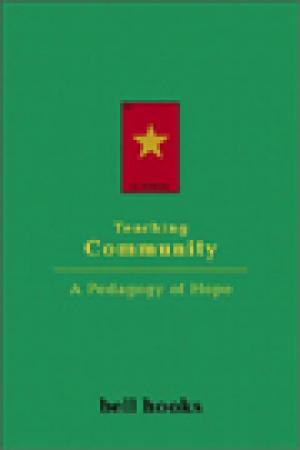
Teaching can happen anywhere, at any time - not just in classrooms but in churches, in bookstores, in homes, anywhere people get together to share ideas that affect their daily life. In Teaching Community, bell hooks shows how complex ideas of cultural theory can be simplified and made relevant to the lives of working people, and how the values of shared knowledge and learning can be a catalyst for progressive social change. Teaching - so often undervalued in our society - can be a joyous and inclusive activity and, as hooks shows, can never be confined to the classroom. (From the Publisher)
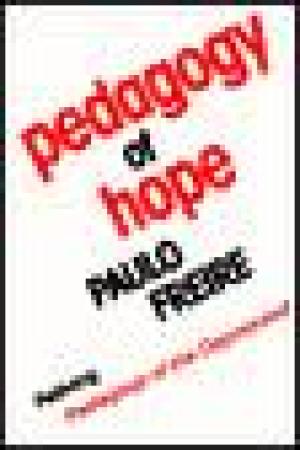
With Pedagogy of Hope, Freire explores his best-known analytical themes - with even deeper understanding and a greater wisdom. Certainly, all of these themes have to be analyzed as elements of a body of critical, liberationist pedagogy. In the present book, we come to understand the author's pedagogical thinking even better, through the critical seriousness, humanistic objectivity, and engaged subjectivity which, in all of Freire's books, are always wedded to a unique creative innovativeness. (From the Publisher)
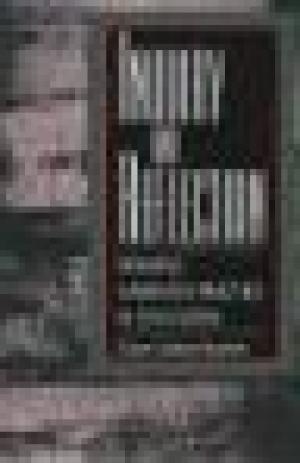
Inquiry and Reflection shows how stories of schooling can elucidate difficult, and unexamined problems facing teachers. While professional texts tend to raise issues of power and its distribution and questions of culture and ideology, often the manner of presentation is abstract, and pre-service teachers have difficulty making connections. Yet literary, film, and video materials illuminate problems and suggest ideas to which teachers can actively respond. This book offers teacher educators a variety of resources for articulating a critical pedagogy and suggests an alternative to the technical, job training approach to teacher education by providing a unique educational curricula that illuminates issues of power, ideology, and culture. (From the Publisher)
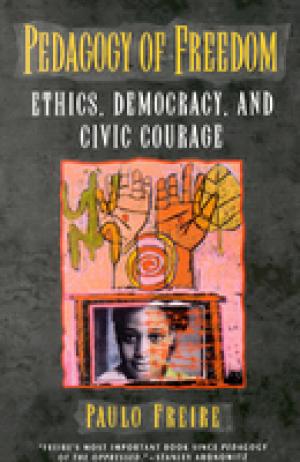
In "Pedagogy of Freedom" Paulo Freire travels ever more deeply into the territory where learning and activism are the essence of human life. This profound new book shows why an engaged way of learning and teaching is central to the creation of the individual, culture, and history. Freire finds in today's emerging global society a new context in which education cannot be indifferent to the reproduction of dominant ideologies and the interrogation of them. He argues against "progressive" liberalism and its passive acceptance of a world where unemployment and hunger must inevitably co-exist with opulence. In so doing, he shows why an acceptance of fatalism leads to loss of personal and societal freedom-and how those individuals who think without optimism have lost their place in history. This book displays the striking creativity and profound insight that characterized Freire's work to the very end of his life-an uplifting and provocative exploration not only for educators, but for all who learn and live." (From the Publisher)
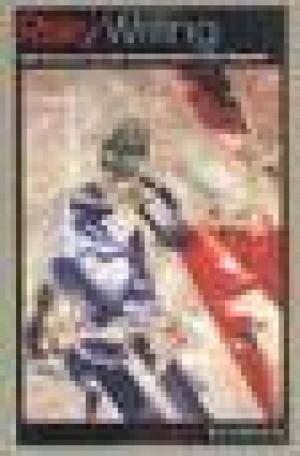
This is the final volume in a trilogy of works that examine the impact of writing and reading about traumatic subjects. "Diaries to an English Professor" (1994) explores the ways in which undergraduate students use psychoanalytic diaries to probe conflicted issues in their lives. "Surviving Literary Suicide" (1999) investigates how graduate students respond to suicidal literature-novels and poems that portray and sometimes glorify self-inflicted death. In Risky Writing, Jeffrey Berman builds on those earlier studies, describing ways teachers can encourage college students to write safely on a wide range of subjects often deemed too personal or too dangerous for the classroom: grieving the loss of a beloved relative or friend, falling into depression, coping with the breakup of one's family, confronting sexual abuse, depicting a drug or alcohol problem, encountering racial prejudice. Berman points out that nearly everyone has difficulty talking or writing about such issues because they arouse shame and tend to be enshrouded in secrecy and silence. This is especially true for college students, who are just emerging from adolescence and find themselves at institutions that rarely promote self-disclosure. Recognizing the controversial nature of his subject, Berman confronts academic opposition to personal writing head on. He also discusses the similarities between the "writing cure" and the "talking cure," the role of the teacher and audience in the self-disclosing classroom, and the pedagogical strategies necessary to minimize risk, including the importance of empathy and other befriending skills. (From the Publisher)
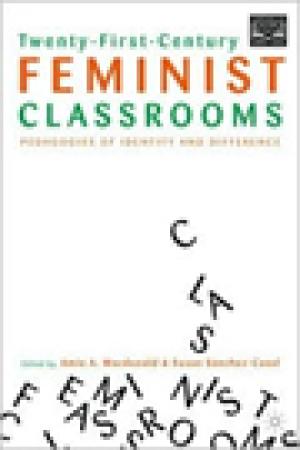
This anti-racist feminist anthology brings together diverse and challenging theoretical perspectives on the experiences of radical educators who work to redefine pedagogies for communicating the claims of both insurgent disciplines--Women's Studies, African-American Studies, Latino Studies, Ethnic Studies, Queer Theory, etc.--and radicalized versions of traditional areas of study--History, Sociology, Foreign Languages, Literature, Philosophy. The authors' analyses of where and how feminist teachers stand in the fray of conflictive classroom dynamics and institutional politics lead them to outline new inquiries into feminist pedagogy highlighted by an intense focus on identity, experience, and difference. In doing so, Twenty-First Century Feminist Classrooms opens a space for engaged feminist self-criticism that seeks to reinvigorate pedagogical practices grounded in multicultural feminist identities. (From the Publisher)
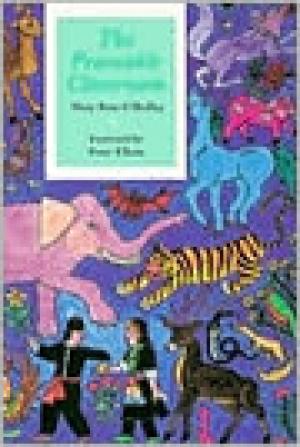
The Peaceable Classroom first defines a pedagogy of nonviolence and then analyzes certain contemporary approaches to rhetoric and literary studies in light of nonviolent theory. (From the Publisher)